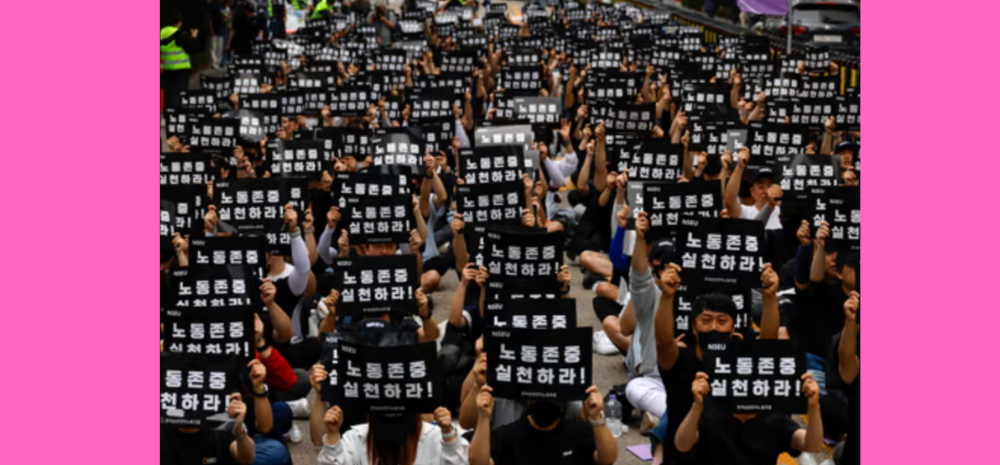In an unprecedented move, a major union representing tens of thousands of workers at Samsung Electronics has announced a strike, marking the first labor action in the company’s history. This strike, scheduled for June 7, poses a significant threat to global semiconductor supply chains and highlights ongoing labor disputes within the tech giant.

Background of the Strike
The strike decision was made after prolonged negotiations between Samsung’s management and the National Samsung Electronics Union, which represents around 20% of the company’s workforce, approximately 28,000 employees. The discussions, which have been ongoing since January, failed to bridge the gap between the union’s demands and the company’s offers.
“We are declaring a strike in the face of the company’s neglect of laborers,” stated a union spokesperson during a livestreamed news conference. The union has demanded an additional holiday and a transparent system for measuring performance bonuses based on sales profits, in addition to the accepted pay raise proposed by the company.
Implications for Samsung and the Tech Industry
Samsung Electronics, the world’s largest producer of memory chips and a key player in the smartphone market, faces a significant challenge with this strike. The company’s pivotal role in the semiconductor industry means any disruption could have far-reaching consequences for global supply chains, especially for high-end memory chips used in generative AI and other advanced technologies.
“Having 20% of its workforce on strike will significantly impact the company as a whole, especially at a time when it needs to act quickly in the ever-evolving semiconductor industry,” commented Kim Dae-jong, a professor of business at Sejong University.
Historical Context
For nearly five decades, Samsung Electronics maintained a strong stance against unionization. The company’s founder, Lee Byung-chul, was famously opposed to unions, and internal documents from 2012 revealed strategies to prevent union formation. However, the landscape changed in 2019 under the influence of a left-leaning government and amidst the controversy surrounding the bribery trial of Lee Jae-yong, the company’s then vice-chair.
The establishment of the union marked a significant shift in Samsung’s labor relations, culminating in the current strike action. The union’s ability to mobilize 20% of the workforce underscores the growing power of organized labor within the company.
Future Outlook
The upcoming strike could lead to a general strike if Samsung’s management and the union fail to reach an agreement. “Samsung will keep in dialogue with the labor union going forward as it has been,” a Samsung official stated. The outcome of these negotiations will likely set a precedent for future labor relations within the company and potentially across the South Korean tech industry.
Conclusion
As Samsung Electronics prepares for its first-ever strike, the implications for the company and the global tech industry are profound. The strike not only challenges Samsung’s long-standing anti-union stance but also highlights the critical importance of fair labor practices and transparent negotiations in maintaining a stable and productive workforce.











